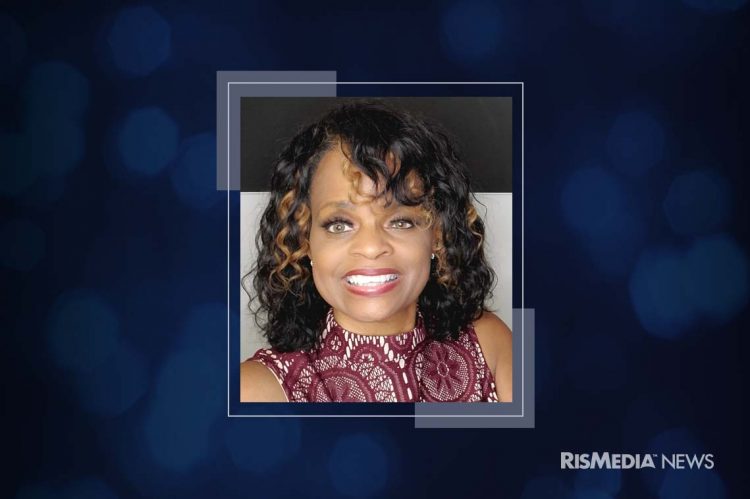For real estate agents and their clients, safety should be a top priority. From protecting yourself during in-person showings to keeping your clients’ information safe on the information highway, learning, understanding and practicing the new rules of safety will ensure success in your real estate business. During RISMedia’s Real Estate’s Rocking in the New Year 2022, Tracey “The Safety Lady” Hawkins, kicked off the virtual event by laying out safety rules for protecting not just the agent, but their clients and their business, as well.
“The number one thing that I teach real estate agents is that you must take safety education seriously,” said Hawkins, founder of Safety and Security Source.
According to the U.S. Department of Labor, real estate sales and leasing is considered a high-risk, hazardous occupation. However, by learning more about REALTOR® safety and training with the proper tools and information, agents can reduce the risks associated with their jobs.
“Safety education should be done by a true subject matter expert,” says Hawkins. “It’s too easy to take whatever is available. You need someone who has walked the walk and who has done the job.”
As a former real estate agent turned safety expert, Hawkins offers tools, training and tips that agents can rely on to keep their business, clients and themselves safe and protected at all times. During her panel, The New Rules of Safety: How to Protect Yourself, Your Clients and Your Business, Hawkins shared some of her best advice for agents.
For many real estate agents, making money is a top priority. But to make significant profits, training is vital. And the same goes for safety training. As we transition into a new year, as well as navigate the “new normal,” agents need to understand the shift in safety practices.
The real estate industry has embraced virtual business, from hosting video tours to utilizing new technology to showcase listings and complete the transaction process. But with new technology comes new challenges.
“When it is time to do an open house, a virtual open house is by far not only the safer way to do an open house, because you are safe, there is no public and there is no danger. But it’s also a more productive way to do an open house,” said Hawkins. “There are more eyes on an open house that could possibly walk through the door.”
Though virtual open houses may reduce the risk of physical danger, there are still some things you need to remember. Hawkins explained that even when you are doing a virtual tour, even live, you need to restrict information, such as the address. Simply offer interested parties your contact information to set up an in-person tour or more information. This will not only ensure both agent and client safety, but help with lead generation.
Safety Training 101
“This is your life that we’re talking about,” says Hawkins. “So make safety training a regular part of your training.”
To ensure that you and your clients make it home safely, training should be a part of your business plan. Hawkins believes that at least once per quarter, agents and teams should hold a safety class, ranging from a class on safe practices, social media safety training or hands-on self-defense.
In addition to safety training for agents, it is important to be prepared to share safety tips with your clients, especially your sellers. From important documents, such as bank statements and medical information, to medications and valuables, be sure to inform your sellers to hide these items away before showing. This will highlight that as their agent, your focus is not on the money, rather how they can stay safe while strangers are walking through their home.
When it comes to your buyer, especially in a world dominated by the COVID-19 pandemic, it is important that you showcase your expertise. By offering resources to them to ensure they are looking in safe neighborhoods, giving health and safety guidelines for visiting for sale homes and providing statistics, you are giving them the tools they need to make the right choice in an agent and a homebuying plan.
Lessons Learned
“Male real estate agents have been the most recent victims of crime. They have been murdered, have had their cars stolen, been physically assaulted and even kidnapped,” says Hawkins. “Whenever I hear male agents say ‘this topic is just for the female agents,’ I want you to know that male agents need to be safe as well.”
Read more: Are Male Agents in Danger? Lessons From Crime Against Agents
Most crimes against real estate agents can be prevented, however, many seem to happen over and over again. By understanding the potential risks, you can ensure that they never happen to you. With the right training from the best resources available, no matter your gender, experience or location, you can reduce and remove potential danger from your day-to-day efforts.
“You need to rely on your number one safety tool to keep you safe,” Hawkins said. “And that is your gut, intuition, instincts, fight or flight and I have even heard it called your spidey sense. Whatever you call it, your body tells you when there is danger, and you need to listen to it.”
Missed the event? Replays including every panel and expert interview are available here.
 Paige Brown is RISMedia’s content editor. Email her your real estate news ideas to pbrown@rismedia.com.
Paige Brown is RISMedia’s content editor. Email her your real estate news ideas to pbrown@rismedia.com.












